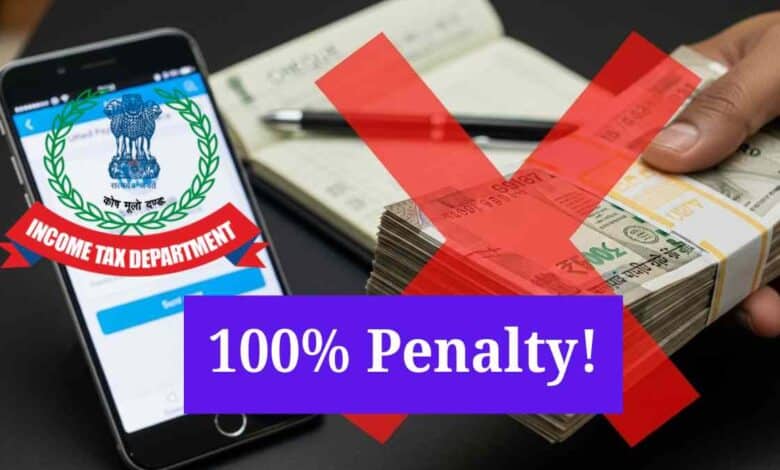100% Penalty! Taking Over ₹2 Lakh in Cash? You Need to Know This Income Tax Rule Now

Cash Transaction Limit: In the age of digital payments, the government is strictly monitoring cash transactions. To curb black money and promote a digital economy, the Income Tax Department has enforced several strict rules. Many people are unaware of these rules, leading them to face hefty penalties unknowingly. In this special report by wbpay.in, we will detail the critical cash transaction limits and the consequences of violating them.
Did you know that accepting cash above a certain limit in a single day can attract a penalty of up to 100%? Yes, this rule is enforced under Section 269ST of the Income Tax Act. Let’s find out the details.
The Main Rule: The ₹2 Lakh Limit (Section 269ST)
According to Section 269ST of the Income Tax Act, no person can receive ₹2 lakh or more in cash:
- In aggregate from a person in a single day.
- In respect of a single transaction.
- In respect of transactions relating to one event or occasion from a person.
This rule applies to all forms of cash receipts, whether for business, as a gift, or for any other reason. Even if you receive ₹2 lakh in cash as a gift from a friend, you will fall under this provision.
What is the Penalty? (Penalty under Section 271DA)
If a person violates Section 269ST (i.e., receives ₹2 lakh or more in cash), they are liable to pay a penalty under Section 271DA. The penalty amount is equal to the amount of cash received, meaning a 100% penalty.
Example: Suppose you receive ₹3 lakh in cash from a client for a single bill. If the Income Tax Department finds out, you may be liable to pay ₹3 lakh as a penalty. This penalty is imposed on the receiver of the cash, not the payer.
Strict Rules for Loans and Deposits (Section 269SS)
A rule many are unaware of is Section 269SS. This section prohibits any person from accepting a loan or deposit of ₹20,000 or more in cash from any other person (be it a friend, relative, or anyone else). Violating this rule can also lead to a 100% penalty (under Section 271DD) of the amount received.
This means if you borrow ₹25,000 in cash from a friend, you are violating the rule. All such transactions must be done via account payee cheque, bank draft, or electronic transfer (UPI, NEFT, RTGS).
Rules for Cash Withdrawals from Banks (Section 194N)
The government is not just monitoring cash receipts but also excessive cash withdrawals from banks. Under Section 194N:
- If a person (who has filed ITR for the last 3 years) withdraws more than ₹1 crore in cash from a bank in a year, 2% TDS will be deducted on the excess amount.
- If the person has not filed ITR for the last 3 years, this limit drops to ₹20 lakh. A 2% TDS is cut on withdrawals above ₹20 lakh, and 5% TDS on withdrawals above ₹1 crore.
Conclusion
These Income Tax Department rules make it clear that the government wants to strictly regulate cash transactions. As a responsible citizen, you should always use digital or banking channels for large transactions. This will not only save you from hefty penalties but also help keep the country’s economy transparent.

